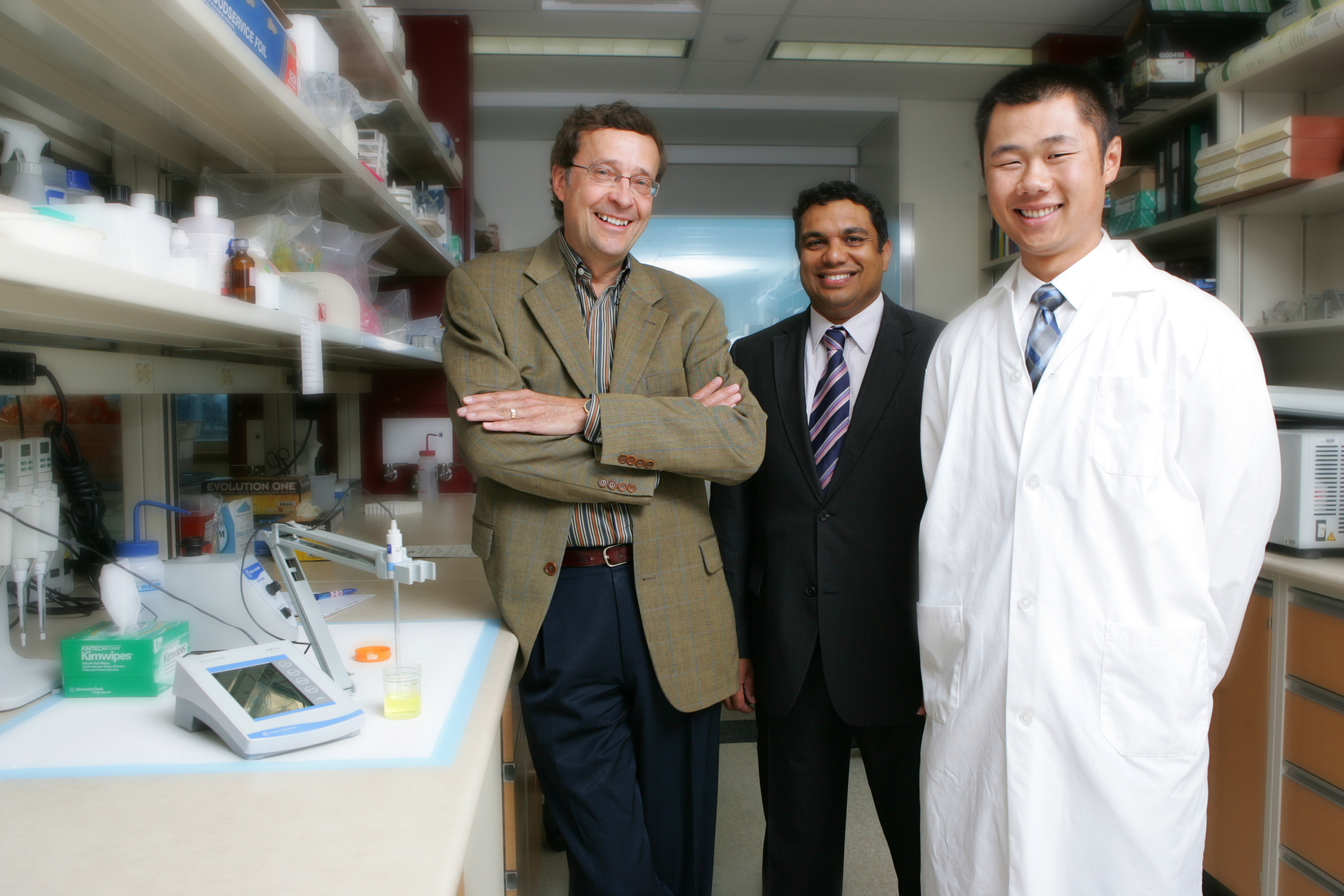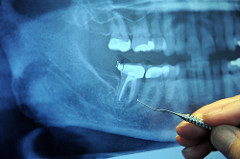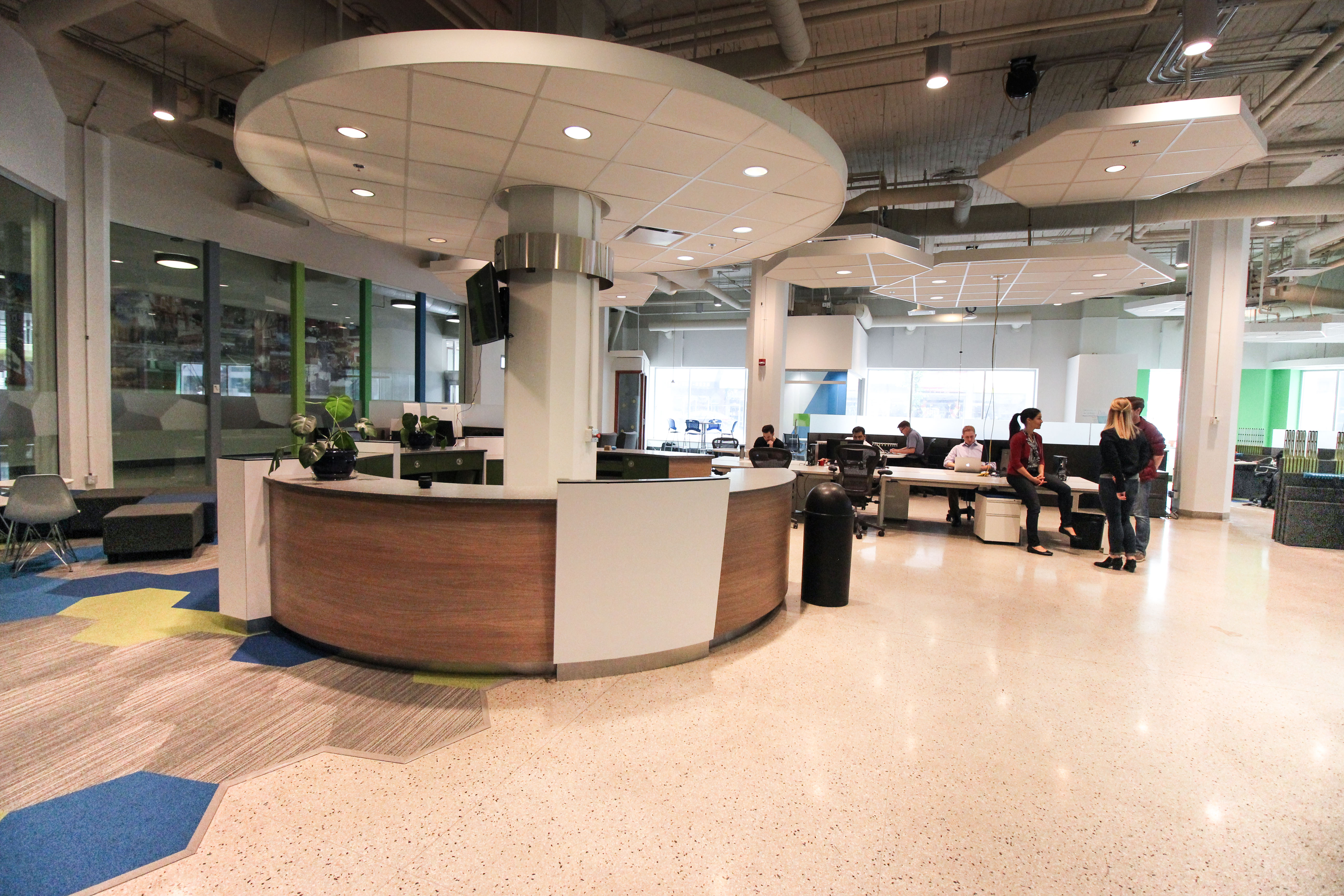 Early disease detection with precision
Early disease detection with precision
Every year approximately 1,600 Albertans are diagnosed with colon cancer and another 600 die from it. Colorectal cancer is a leading cause of death in North America.
Metabolomic Technologies Inc.(MTI)-founded by U of A assistant professor of surgery Haili Wang and Richard Fedorak, dean of the Faculty of Medicine & Dentistry - has developed a product called PolypDx™ to significantly reduce those statistics by detecting polyps before they become cancerous. The early detection device is a non-invasive, easy-to-collect urine test, and―most important―more accurate than current fecal-based screening tests.
"This is the start of precision medicine, where you can use a simple diagnostic test to tell you what your problem is," said Fedorak. "It is part of the bigger University of Alberta mission to support Alberta's evolution to a health economy, something our scientists in the Faculty of Medicine & Dentistry can drive."
MTI recently signed a multimillion-dollar licensing agreement for PolypDx™ and the team are now examining whether they can develop similar tests for the early detection of prostate and breast cancer.
You can't target what you can't see
Did you know a big sigh can shift a lung tumour several centimetres
Currently, the imaging to determine where a tumour is and the radiation therapy to treat it require two separate medical appointments. Since tumours can shift between appointments, doctors have accepted some healthy tissue may be damaged during radiation.
Enter University of Alberta medical physicists Gino Fallone and Brad Murray, who invented, developed and built a new device that combines an MRI machine and medical linear accelerator into one unit. The device, called the Aurora RT™ Linac-MR, allows continuous adjustment of the radiation beam to hit with unprecedented accuracy and precision only the tumour, no matter how much it shifts during radiation delivery.
The Linac-MR team, led by Fallone, has built two functional prototypes and published more than 50 peer-reviewed articles about its technology. Their U of A spinoff company, MagnetTX Oncology Solutions, won the 2016 VenturePrize DynaLIFE Dx Health prize and recently secured worldwide exclusive rights from Alberta Health Services and the University of Alberta to carry the project forward to commercialization.
New dental training tool improves X-ray-taking technique, lowers risk of repeat radiation exposures for patients
UAlberta researcher writes iBook to help improve picture-taking technique and cut risk of repeat exposures for patients.
Every day patients ask dentists if X-rays are safe. While dentists reassure patients that digital X-rays use very low levels of radiation ― even less than conventional film ― careful picture-taking technique is essential to avoid re-exposures.
After observing the struggles dentistry students were having with the different techniques required for digital X-rays, Anthea Senior, U of A clinical associate dentistry professor, developed a training manual for classroom and clinic use in 2014.
Senior's original manual proved to be so popular with the dentistry community worldwide that with business advice and licensing assistance from TEC Edmonton, she partnered with Dentsply Sirona to extend the manual's' distribution as a training resource for industry and practitioners.
 New business accelerator space unveiled
New business accelerator space unveiled
TEC Edmonton's 24-hour workspace gives entrepreneurs room and resources to bring their ideas to market
In January 2017, TEC Edmonton opened the TEC Innovation District, a new 24-hour community workspace located on the ground floor of Enterprise Square in the heart of Edmonton's downtown.
Chris Lumb, CEO of TEC Edmonton, said the location's street-front appeal makes it an ideal site where health and technology entrepreneurs can get mentorship and coaching from in-house experts.
The new space will allow TEC Edmonton to do more of what it does best - grow companies. TEC Edmonton companies have an annual growth rate of 25 per cent, compared with a rate of less than five per cent nationally.
Bridging distances to innovate together
New JLABS POD @ Alberta connects U of A health entrepreneurs with the world to speed up the translation of health research to patient care.
Launched in May 2017, JLABS POD @ Alberta is a secure, state-of-the-art video conferencing system that allows researchers and health entrepreneurs to connect to the Johnson & Johnson Innovation network, which includes labs in Toronto, New York, San Francisco, London (U.K.) and more.
Housed on the U of A North campus, at the Katz Group Centre for Pharmacy and Health Research, JLABS POD @ Alberta provides local innovators with access to global markets and mentorship to move science discoveries forward, both in patient care and health entrepreneurship ventures.
JLABS POD is funded by the Johnson & Johnson Alberta Health Innovation Partnership (JAHIP), a collaboration that includes the Alberta Ministry of Economic Development and Trade, Janssen Inc. and the University Hospital Foundation.